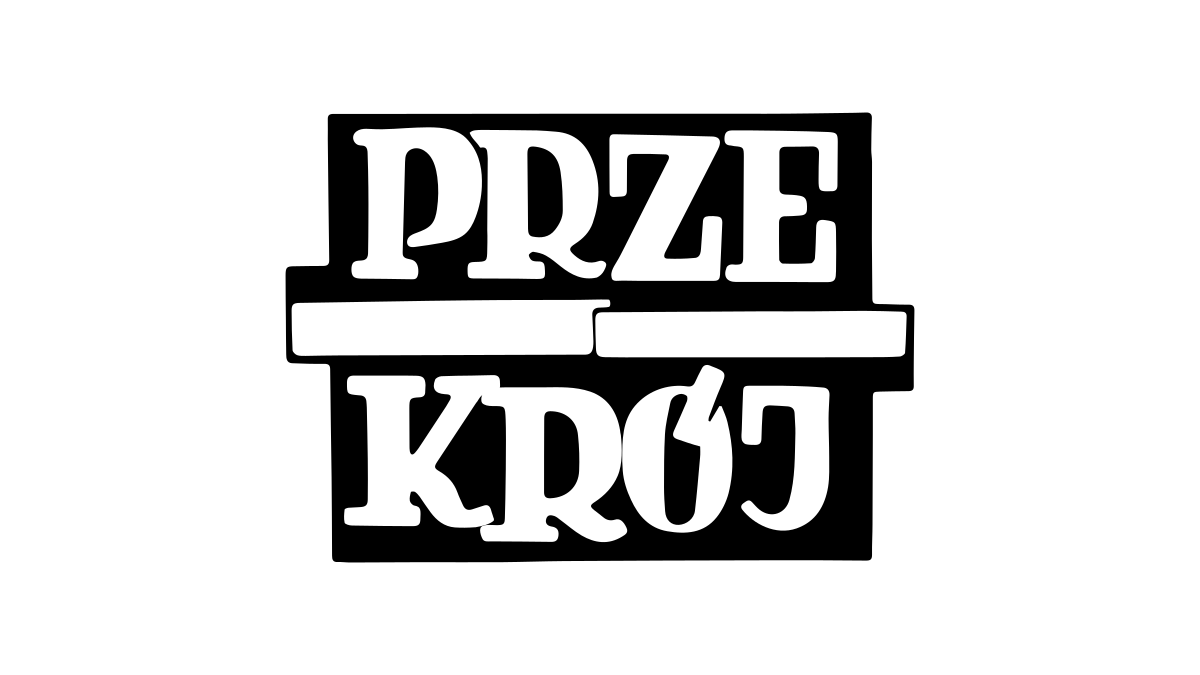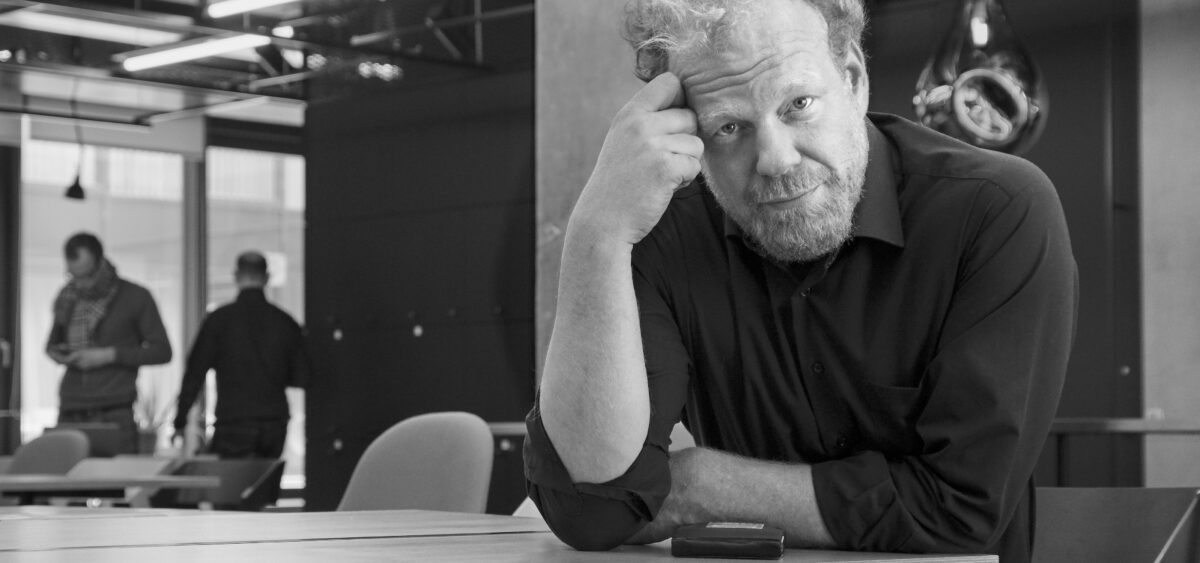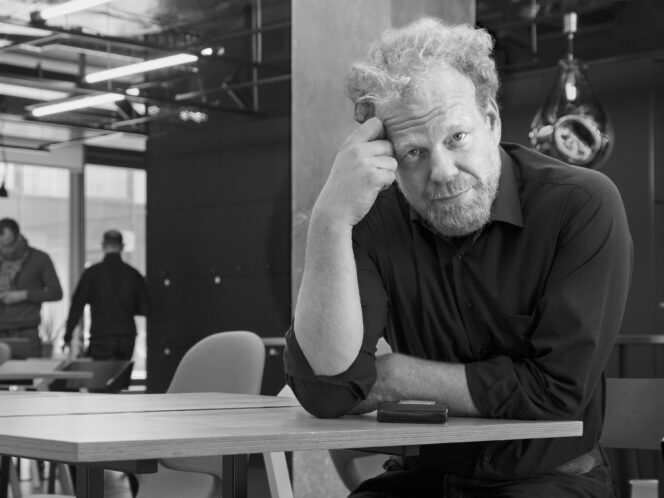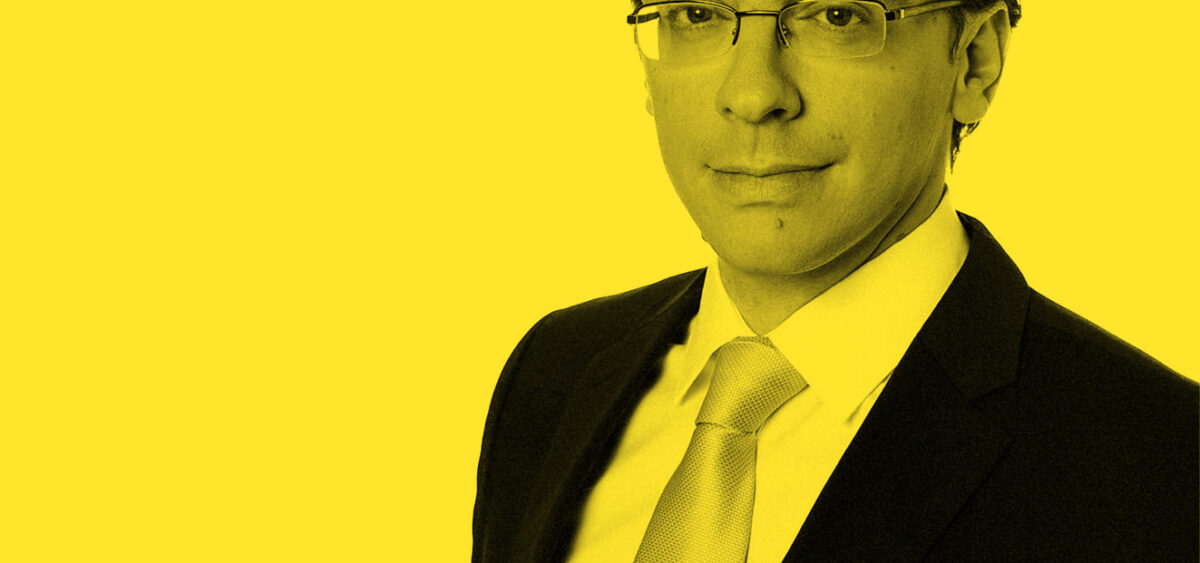
The pandemic is a chance to escape the system. We’re finally in charge of our own lives, time and freedom. We’re waving goodbye to ridiculous things. And we’re migrating to the online world because it’s faster, cheaper, smarter and healthier. It’s our first exercise in global responsibility. All in all, we’re faring quite all right, and when the crisis is over, we’ll rise again like a phoenix. A fairy tale? No, the opinion of an economist. So prophesizes Tomáš Sedláček, in conversation with Paulina Wilk.
During the past year, the philosopher and economist Tomáš Sedláček has focused on fulfilling his dreams. He learned to dive, to fly a glider and to box. For the first time, he was truly living in his home. He arranged a studio full of books, statues and paintings. That’s where he was when talking to “Przekrój”, although he stopped the conversation a couple of times in order to listen to the bells of a nearby church, repair an old alarm clock and finish vacuuming. When Sedláček talks about the economy, he uses metaphors. His thoughts are flamboyant and he often takes seemingly wild turns. Once he used to fly around the world, only equipped with hand luggage and a single white shirt. He would sleep in B&Bs, avoiding hotel chains and taxis. Now he’s even gotten rid of his car and he rides around Prague on a unicycle.
For this scientist, hailed in his youth as a visionary, who, until now, was spending most of his life aboard jet planes, staying in one place is a complete novelty. At the age of 24, Sedláček became an economic advisor to Václav Havel. Later he advised several Czech prime ministers, as well as EU commissioners. He studied in Prague and at Yale. In 2011, his book Economics of Good and Evil: The Quest for Economic Meaning from Gilgamesh to Wall Street conquered the world; ever since then, he’s been considered one of the most inspiring and influential economists around. Sedláček works as a strategic advisor for one of the Czech banks and is a lecturer at Charles University. As far as the pandemic is concerned, he is an optimist – according to Sedláček, we’re witnessing the birth of a new origin myth. After browsing the history of humankind looking for precedents, he now thinks our current situation is completely unique.
Paulina Wilk: You once compared the modern economy to manic depressive disorder, because it periodically goes from hyperactivity and excitement to depression and passivity. In which phase was the global economy when the pandemic started, and where are we now?
Tomáš Sedláček: It seems that we are having difficulty with balance. Just before the pandemic, we were in a phase of hyperactivity – in many countries, consumption indexes were high, and so was growth. What we’re seeing now is what happens to depressed people: nothing seems to make sense, we feel stifled, we can’t move, it’s like someone put a cloth on our face. The economy in the pandemic reminds me of the tale of Sleeping Beauty.








